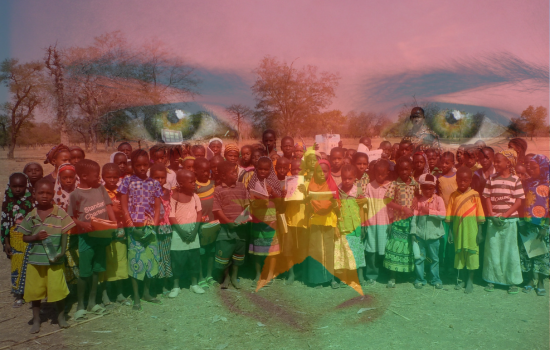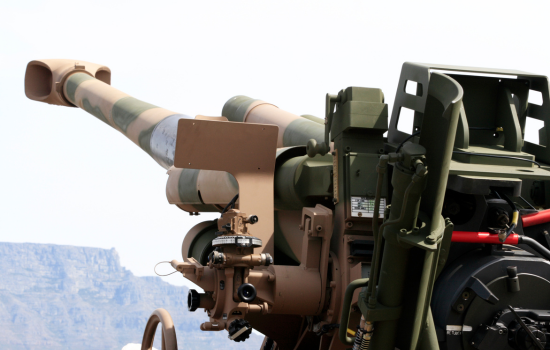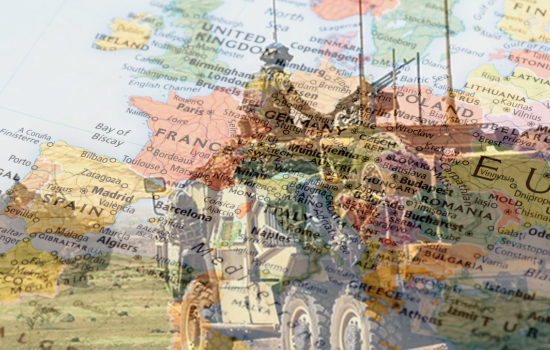Is Burkina Faso Facing Collapse?
Abstract
This paper addresses the deteriorating internal security situation in Burkina Faso, attributed to escalating attacks by radical Islamic organizations across several regions. It traces the crisis’s roots to political instability following the 2014 ousting of President Blaise Compaoré and the spread of jihadist influence from neighboring Mali. The analysis highlights how jihadist groups have gained local support by providing essential services and imposing strict Sharia laws, creating a complex socio-economic and security dilemma for the local population.
The study examines the Burkinabe state’s military response, including controversial tactics and the establishment of paramilitary militias, and their impact on civilians. It also covers the humanitarian crisis, marked by significant displacement and the urgent need for assistance, amidst the backdrop of increasing terrorist attacks and a complex attribution of responsibility.
Concluding with an overview of regional implications, particularly the Liptako-Gourma Treaty among Sahel countries, the paper underscores the need for a comprehensive approach to counterterrorism and humanitarian support. It aims to provide insight into Burkina Faso’s security challenges, offering perspectives on potential solutions in the Sahel’s broader geopolitical and humanitarian landscape.
Introduction
The internal security situation in Burkina Faso is deteriorating, mainly in the Sahel, Center-North, North Boucle du Mouhoun, and Eastern regions. Attacks by radical Islamic organizations have become a frightening and bloody routine.
Burkina Faso, which means literally: ‘the country of honest/honest men’ (pays des hommes intégrés),[1] is facing a very serious security internal crisis, like many of its neighbors, when Islamic armed groups conduct terrorist campaigns and kidnap people in its territory. It is noteworthy that about 40% of its territory is occupied by the Jihadists who imposed, in the territories they conquered, the strict Sharia laws on the local population.[2]
The local population (about 24 million people) is ‘trapped’ between jihadist Islamic groups operating in the north and east and the military power of the country headed by Captain Ibrahim Traoré after he staged a military coup in September 2022.[3]
The jihadist groups active in Burkina Faso are Jamaat Nasr al-Islam wal al-Muslimin (JNIM Support Group for Islam and Muslims) and the Islamic State of the Greater Sahara (ISGS).
Historical Background
Burkina Faso is at the heart of a tremendous storm – between political/social disintegration and an unprecedented security disintegration. The country is now suffering from the jihadist virus, a plague that spread to it from neighboring Mali in 2012. It seems that the merciless fight against the extremist Islamic movements is a long-term struggle.
What are the Factors Behind the Situation?
2014 represents a turning point in the history of Burkina Faso. Blaise Compaoré, then the country’s president, announced, after 27 years in power, a constitutional reform project that would give him 15 more years as head of state (a very common phenomenon in Africa). Public protest for constitutional reform was not long in coming, and he was ousted on October 30, 2014, after three days of violent protests. Behind the victory of the public hid the specter of predicted uncertainty and instability – what will happen next? Alongside the country’s supreme judiciary, President Compaoré has established himself as a key player in negotiations and a mediator in West Africa. In the case of the 2012-2013 crisis in Mali, Compaoré positioned himself as the main interlocutor/mediator of Mali’s Tuareg communities and of certain jihadist groups (including Ansar al-Din Dayan and Iyad Ag Ghaly).
This situation motivated/promoted a specific ambition of Compaoré – his only goal was to protect the sovereignty of Burkina Faso at the expense of security in the Sahel.
Compaoré communicates with the Islamist troops fighting in Mali on a regular basis in this particular situation.
The closeness between the jihadist groups in the Sahel/Mali and Compaoré, as well as the vacuum created after his removal, left the door wide open for the spread of Salafi ideology in Burkina Faso.
The Salafi Position
Positioning oneself as the provider of the different requirements that the citizen requires in regard to the absence of governance and the lack of official support in the periphery is the Salafi perspective (Salafi Islamists), represented by the various jihadist groups.
The position is often presented as an anti-government protest that promises the citizens an improvement in living conditions in almost every field. As an inherent part of the Salafi ideological platform, while assimilating the Salafi position among the population, the feelings of hatred and alienation of the citizens towards the state and its institutions are constantly being aroused.
Practically speaking, for example, the Islamist jihadists, in the territories they took over, expropriated the concessions for local gold and energy mines from foreign parties and returned the exploitation of the resources and their compensation to the residents, the people of Burkina Faso. In addition, the jihadist groups distribute to the population food such as corn, medicine […], a monthly salary of 600 dollars for those who work with them (three times the salary of a teacher) as well as a bonus of 600 dollars and 800 dollars for those who participate in the attacks. This is a series of temptations for the population that cannot be resisted. And thus, the Islamist organizations are ‘planting’ roots in the land of Burkina Faso.
As everyone is aware, there are no free meals. The bill is gradually making its way to this populace in the form of taxes that must be paid and the enforcement of harsh Sharia regulations.
Salafist prohibitions include those pertaining to alcohol, tobacco, full veiling, careful sermon listening, and more. Naturally, individuals who disobey the rules face harsh penalties, public humiliation, and occasionally even execution.[4]
The State Response
The army of Burkina Faso, the FDS (Forces de Défense et de Sécurité), embarked on an operation known as ‘Operation de reconquête du territoire national’ in order to regain control of all parts of the country.
The army claims that the ‘war on terror’ warrants the use of all means, even hurting innocent bystanders, restricting press freedom, and limiting the ability of professional unions, like the attorneys’ union, to take action.
Along with the national army, the VDP (Volontaires de défense pour la Patrie) was established, a paramilitary militia designed to help fight against armed extremist Islamic Jihad groups. The public response in favor of this militia is weak, and therefore, the authorities forcefully recruit it in blatant violation of basic civil rights. Arrests, executions, forced recruitment, and mysterious disappearances […] have been part of the public landscape ever since Captain Traore took power in September 2022. He rules his country with an iron fist and wants to silence any critical voice.[5]
On April 20, 2023, Traoré, the president of the transitional government in Burkina Faso, officially signed the general mobilization order. According to the order for a year, the authorities have permission, in the name of national security, to take extraordinary measures against anyone who refuses to enlist. According to the order, any young man aged 18 or older who is physically fit may be called to enlist to participate in the war effort, specifically in the fight against jihadist organizations.[6]
Terrorist Attacks and the Involvement of the Army
At the beginning of March of this year, massacres took place in eastern Burkina Faso. According to information gathered on the spot by an RFI (Radio France Internationale) team, they took place in the commune of Gayéri, near the border with Niger: videos show dozens of bodies of men, women and children. The problem is that it is difficult to determine who is responsible for the massacre: the armed Islamic groups or security forces of Burkina Faso. Survivors of the massacre speak and testify about elements from the BIR (Bataillons d’Intervention Rapide) responsible for the massacre. These are rapid intervention battalions established in October 2023 by Traoré. The military ruler criticized the villagers for refusing to supply men to the VDP – and simply took revenge on the residents.[7]
The massacres in March 2024 come after those of February 25 – a bloody day for the country: in Yatenga district, in northern Burkina, nearly 170 people were killed during coordinated attacks in three villages, Komsilga, Nodin and Soroe.[8] On the same day, several dozen people were shot dead while praying in the mosque of Natiaboani, a village in the east of the country. On February 25, there was a massacre in the church in Essakane, in the north, with several dozen victims.[9] This village is located not far from the borders of Mali and Niger, in an area where armed movements associated with al-Qaeda or the Islamic State organization proliferate.
The massacres did not lead to any response from the government of Burkina Faso, apart from a press release by prosecutor Ouahigouya, which casts doubt on the estimated number of those murdered: “There is no evidence to confirm this figure of 170 people”. The prosecutor called for ‘caution pending the results of the investigation.’[10] The involvement of army units in certain massacres contradicts the government’s narrative of ‘reconquest of national territory .’In the past five years, the war against radical Islamic organizations in Burkina Faso has left almost 20,000 dead and displaced more than 2 million in their country.[11]
Following the recent events in February 2024, the International Federation for Human Rights (FIDH – The International Federation for Human Rights) urgently called for the establishment of an independent commission of inquiry and the appointment of an independent UN expert on the human rights situation in Burkina Faso.[12]
As of 2023, about 25% of all terrorist attack deaths worldwide have occurred in Burkina Faso, which is governed by a military junta headed by Captain Ibrahim Traore.
The death toll rose to 1,907 in 2023 from 1,135 in 2022, despite a drop in the number of attacks, according to the Sydney-based Institute for Economics & Peace’s Global Terrorism Index. Deaths from terrorism in the country have increased continuously every year since 2014, when no deaths were recorded, said the report published on March 1 this year. [13]
Deaths from terrorist attacks fell to 753 in Mali from 806 the previous year, while in Niger, they more than tripled to 468 from 193, according to the institute.
According to the report, al-Qaeda’s West African branch – Jamaat Nusrat al-Islam wal al-Muslimeen – continues to be the main perpetrator of terrorist attacks in Burkina Faso.
In a January 2024 report, Human Rights Watch accuses the Burkina Faso army of atrocities and the killing of at least 60 civilians since August 2023, some of whom were killed in drone strikes. The army, in its defense, explained that it attacked armed groups.[14] Human Rights Watch claims that Islamist rebels, Burkina Faso’s security forces, and pro-government militias, the VDP, “are all responsible for grave abuses, which further degrade human rights and the humanitarian situation in Burkina Faso.”[15] This chaotic situation seems appropriate for the ruling military junta because it causes the public opposition to it to be weak and ineffective.
The Humanitarian Crisis
According to a 2023 summary report from OCHA (the United Nations Office for the Coordination of Humanitarian Affairs), Burkina Faso is facing a severe humanitarian disaster that might have a significant impact on its neighbors as well as pose a serious threat to the country’s ongoing existence.
From January to December 2023, the report states that approximately 2.9 million people received emergency humanitarian assistance thanks to the combined efforts of humanitarian partners. During this year, philanthropical/humanitarian air services were able to deliver more than 12,000 tons of food and 900 tons of non-food items, providing vital assistance to populations in hard-to-reach areas who are in dire need of support.” According to the government, more than 300,000 people returned to their places of origin during the year. In addition, through the efforts of the government and its humanitarian partners, 1,080 educational buildings were reopened, allowing 109,000 students to return to school. 2023 was nevertheless marked by many security events (1,699 from January to December 2023, according to the ACLED [Armed Conflict Location & Event Data Project]), and more than 700,000 people have been recently displaced.[16] These displacements and the vulnerability of entire communities undermine and intensify the security crisis, along with natural disasters such as floods, drought, and epidemics that increase the intensity of the crisis and the humanitarian needs in the country.[17]
Conclusion
I will remind you that on September 16, Mali, Niger, and Burkina Faso signed the Liptako-Gourma Treaty, thereby establishing a new alliance between the three Sahel countries – the AES (Alliance des Etats du Sahel).[18] In addition to dividing the same geographic region of the Sahel, the three neighboring countries are not only run by the military but face a common threat from spreading radical Islamic Jihad groups. This is the background to why Mali, Burkina Faso, and Niger decided to unite their military forces to face the challenges they share. The three countries undertake to fight terrorism in all its forms and organized crime in the common space of the alliance and even assist its members in case of external attacks, against the background of threats heard from Western and African countries to intervene and restore democracy and the ousted presidents.
The jihadist danger that prevails mainly in Mali, Niger, and Burkina Faso also threatens other countries in West Africa. The state of Benin, for example, suffered several deadly attacks in the north of the country. The progress of the jihadist groups indicates their intention to expand to the coastal countries of the Gulf of Guinea.
Given the fact that the alliance is solely dependent on the efforts and financial contributions of its three member nations, the collapse of one of those nations might bring down the alliance as a whole. The Western world and the neighboring African countries are boycotting these three countries due to the military coups that took place in them and the unwillingness of the military juntas to restore democracy to the countries. A possible collapse of Burkina Faso as a country will help the Islamic Jihadist groups first to complete the takeover of the entire country and expand from there towards the Gulf of Guinea.
[1]‘Proud of their integrity’ for more on the subject, see, in French at the link: https://www.jeuneafrique.com/107260/politique/pourquoi-le-burkina-est-il-le-pays-des-hommes-int-gres/
[2] In Burkina Faso, the jihadists intensify their asphyxiation strategy in the cities of the North and the East
https://www.lemonde.fr/afrique/article/2022/09/07/au-burkina-faso-les-djihadistes-intensifient-leur-strategie-d-asphyxie-des-villes-du-nord-et- de-l-est_6140529_3212.html
[3] Eight months after the military putsch that ousted President Roch Marc Christian Kaboré on January 24, 2022, Burkina Faso experienced a new coup. On September 30, 2022, army units rebelled against Lieutenant-Colonel Paul-Henri Sandaugu Damiba. Demiba finally agreed on October 2 to resign before going into exile in Togo. He has since been replaced by captain Ibrahim Traoré.
[4] Douce Sophie, “Au Burkina Faso, la dégradation de la situation sécurité gagne du terrain,” Le Monde (15.5.2019).
[5] Un climat de peur s’est imposé au Burkina Faso
https://www.dw.com/fr/burkina-faso-climat-de-peur/a-68496583
[6] In Burkina Faso, Ibrahim Traoré decrees general mobilization
[7] Burkina Faso/Forces armées nationales : Cinq Bataillons d’intervention rapide created
[8] Burkina Faso: a new massacre in the province of Komondjari in the east of the country
https://www.msn.com/fr-fr/actualite/monde/burkina-faso-un-nouveau-massacre-dans-la-province-de-la-komondjari-%C3%A0-lest-du-pays /ar-BB1jjyga
Around 170 ‘executed’ in three Burkina Faso villages, public prosecutor says
[9] See the link: https://www.la-croix.com/international/burkina-faso-des-dizaines-de-morts-dans-l-attaque-dune-mosquee-20240226
[10] See the link: https://burkina24.com/2024/03/02/plusieurs-personnes-tuees-dans-le-yatenga-la-justice-lance-un-appel-a-temoignages/
[11] Burkina Faso: 20,000 dead and more than 2 million displaced since the start of the war
https://www.humanite.fr/monde/burkina-faso/burkina-faso-20-000-morts-et-plus-de-2-millions-de-deplaces-depuis-le-debut-de-la- guerre
[12] Spiral of violence in Burkina Faso: the FIDH demands the end of impunity
[13] See the link: https://intellivoire.net/le-burkina-faso-a-enregistre-un-deces-sur-quatre-du-au-terrorisme-en-2023
[14] Burkina Faso: Drone Strikes on Civilians Apparent War Crimes
https://www.hrw.org/news/2024/01/25/burkina-faso-drone-strikes-civilians-apparent-war-crimes
[15] Burkina Faso: Abductions Used to Crack Down on Dissent
https://www.hrw.org/news/2024/02/27/burkina-faso-abductions-used-crack-down-dissent
[16] The Sahel: A Deadly New Era in the Decades-Long Conflict
See the link: https://acleddata.com/conflict-watchlist-2024/sahel/
[17] For more information on the report’s data, see: Rapport de situation – Burkina Faso – February 21, 2024
https://reports.unocha.org/fr/country/burkina-faso/
[18] Mali, Niger and Burkina Faso sign Sahel security pact
https://www.reuters.com/world/africa/mali-niger-burkina-faso-sign-sahel-security-pact-2023-09-16/






